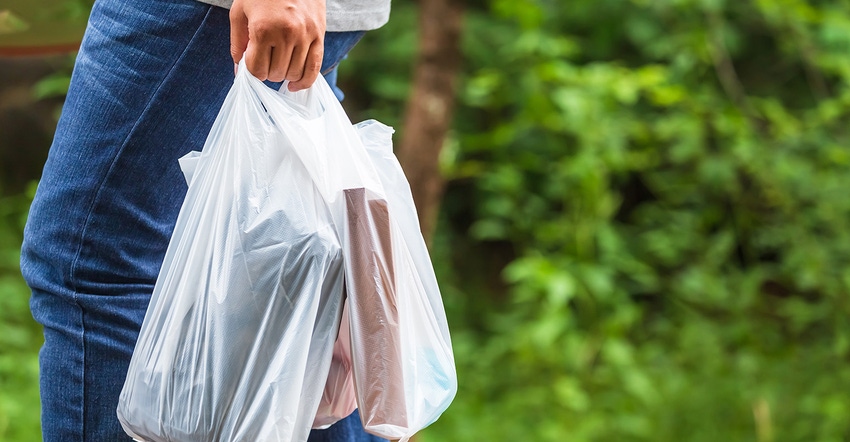EPR Goes to Washington
As extended producer responsibility (EPR) gains traction in some states, should industry support national legislation to avoid regulatory dysfunction?
March 13, 2024

In a recent poll on LinkedIn, we asked the PlasticsToday audience whether or not it agreed with California’s legislation to ban the use of plastic bags altogether at grocery stores and other outlets that sell food. Not surprisingly, 62% were against this type of initiative. But a not insignificant 38% were in favor. That’s noteworthy coming from an audience that is not reflexively anti-plastics. And it aligns with statements made by industry groups at a Senate hearing last week to consider enshrining some form of extended producer responsibility (EPR) in national legislation.
The producer pays
EPR, in essence, requires brand owners and to some extent manufacturers and materials suppliers to pay for the environmental impact of their products. It has gained traction in a handful of states, most notably in California. SB 54 was signed into law by California governor Gavin Newsom in June 2022. Among other requirements, it mandates that all packaging in the state be recyclable or compostable by 2032 and that plastic packaging and foodware be reduced by 25% in 10 years. The enforcement mechanism relies largely on fines imposed on companies and manufacturers that fail to meet targets. Colorado, Oregon, and Maine also have passed EPR legislation targeting packaging.
EPR on a national scale
EPR-type legislation is now being discussed at the federal level in hearings led by US Senator Tom Carper (D-Del.), chairman of the Senate Environment and Public Works (EPW) Committee. Sen. Carper initiated the Senate hearing to investigate how EPR-type programs “can improve recycling infrastructure and practices” on a national scale, he said in his opening statement, which is published on the EPW website. Also weighing in is the chairman and CEO of S. C. Johnson & Son Inc., H. Fisk Johnson, PhD, who opined that a “complex web of state regulations” is emerging that will result in “significant complexity, cost, and dysfunction.” Federal regulation is needed, he continued, “to avoid overregulation.”
That may sound oxymoronic, but it indicates to me that Johnson, like the 38% of voters in our poll, feel that the plastics-reduction-in-packaging ship has sailed and we should move on. For Johnson, that includes industry shifting its focus to finding a consistent, workable national compromise to avoid a blunderbuss of inconsistent state legislation.
Brand owners on the receiving end
Ameripen, an association that lobbies for brand owners, packaging converters, materials suppliers, and recyclers, is also inclined to favor a federal EPR framework. “There’s unfortunately a lack of consistency between these emerging [state] laws and the additional proposals we’re seeing come forth in the US, causing concern for many including brand owners who will be the primary responsible party for funding those programs,” writes Ameripen Executive Director Dan Felton on the EPW site.
None of this negates the substantive ongoing debate about the environmental impact of plastics versus paper and glass from a holistic life-cycle perspective, which we have covered extensively in our Dispatches from the War on Plastics section. A comment on our LinkedIn poll included a link to the video embedded below, which addresses some of these issues. And there are a couple of salient comments on LinkedIn regarding the wisdom of banning plastic bags that are meant to carry grocery items, many of which are, uh, wrapped in plastic.
At the end of the day, though, industry must choose its battles. We’ll keep on eye on what happens in the Senate and keep you informed on any outcomes.
About the Author(s)
You May Also Like


